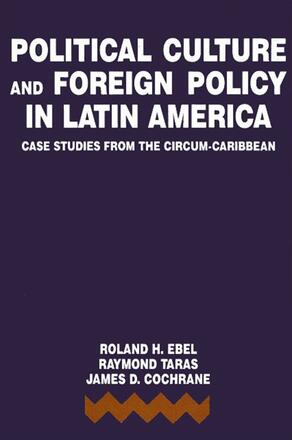
Political Culture and Foreign Policy in Latin America
Case Studies from the Circum-Caribbean
Alternative formats available from:
Description
This book explores the impact of Latin America's political culture on the international politics of the region. It offers a general account of traditional Iberian political culture while examining how relations among states in the hemisphere — where the United States has been the central actor — have evolved over time. The authors assess the degree of consistency between domestic and international political behavior. The assessments are supported by case studies.
At Tulane University's Department of Political Science Roland H. Ebel is Associate Professor, Raymond Taras is Associate Professor, and James D. Cochrane is Professor.
Reviews
"This is a well-written, comprehensive analysis of political culture and its impact on foreign policy. It's a welcome addition to the work being done on national belief systems, values, attitudes, and traditions and their impact on foreign policy-making processes. This book is what social science research is all about — presentation and confirmation of useful middle-range theories. It is a good, solid piece of research that covers an important topic area. " — Steven Lamy, University of Southern California
"This is an excellent book that breaks new ground by focusing on the role of political culture in shaping foreign policy. The work is outstanding; it is a quality book of significant merit. " — Howard J. Wiarda, University of Massachusetts at Amherst